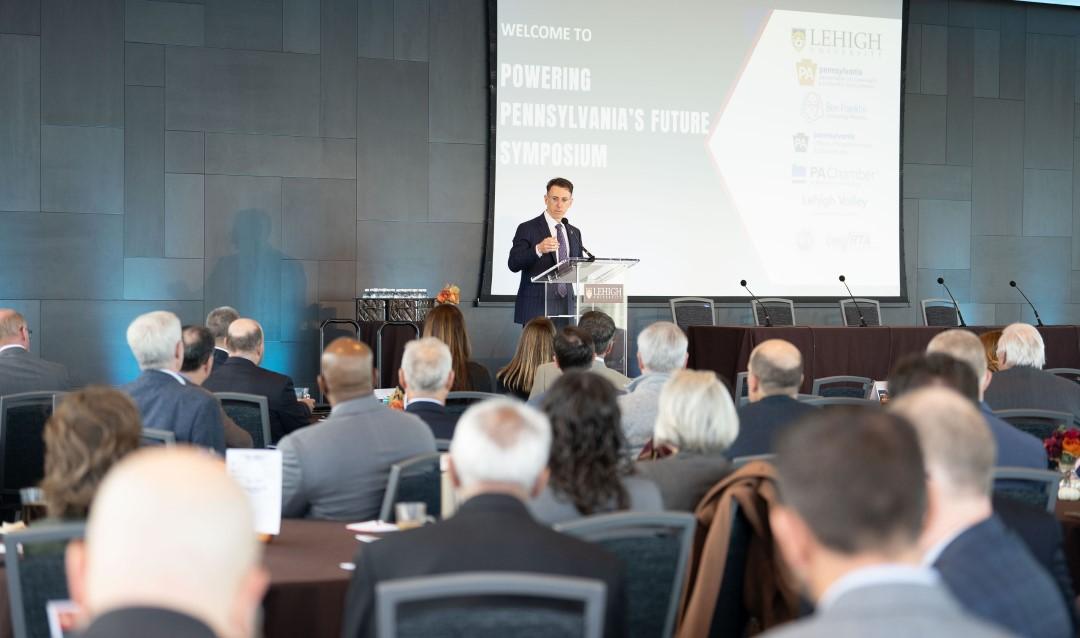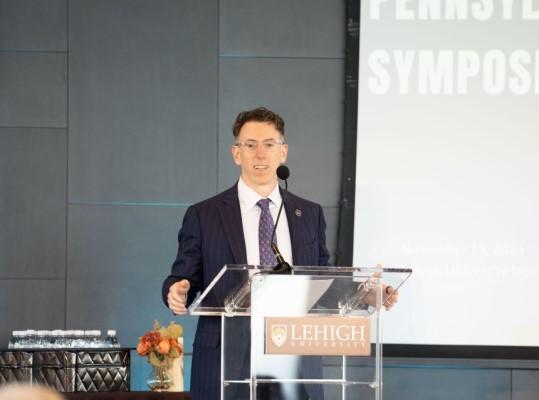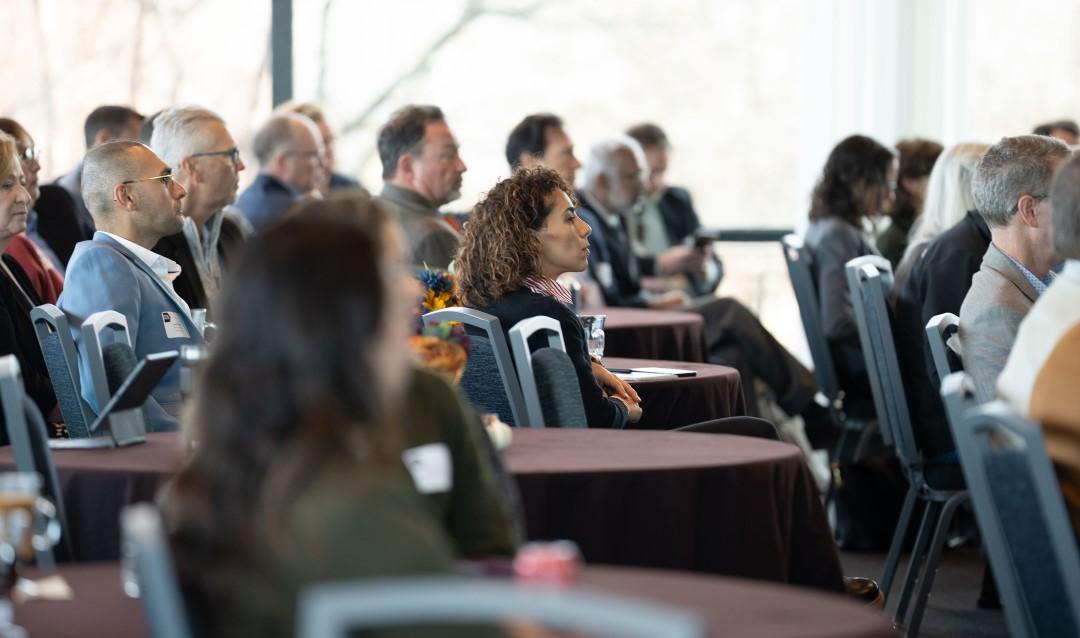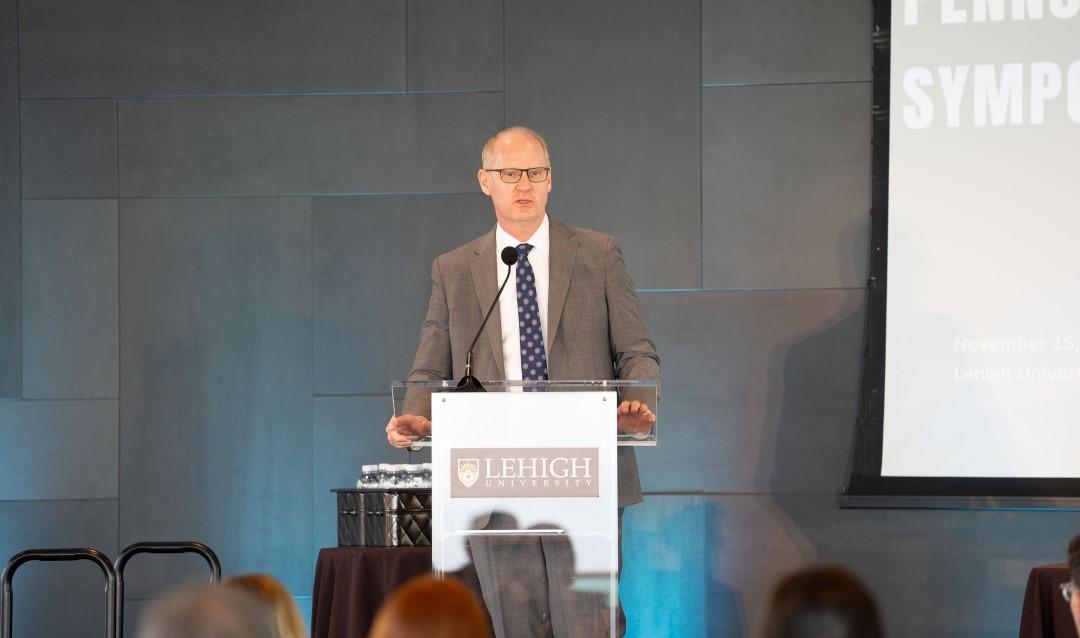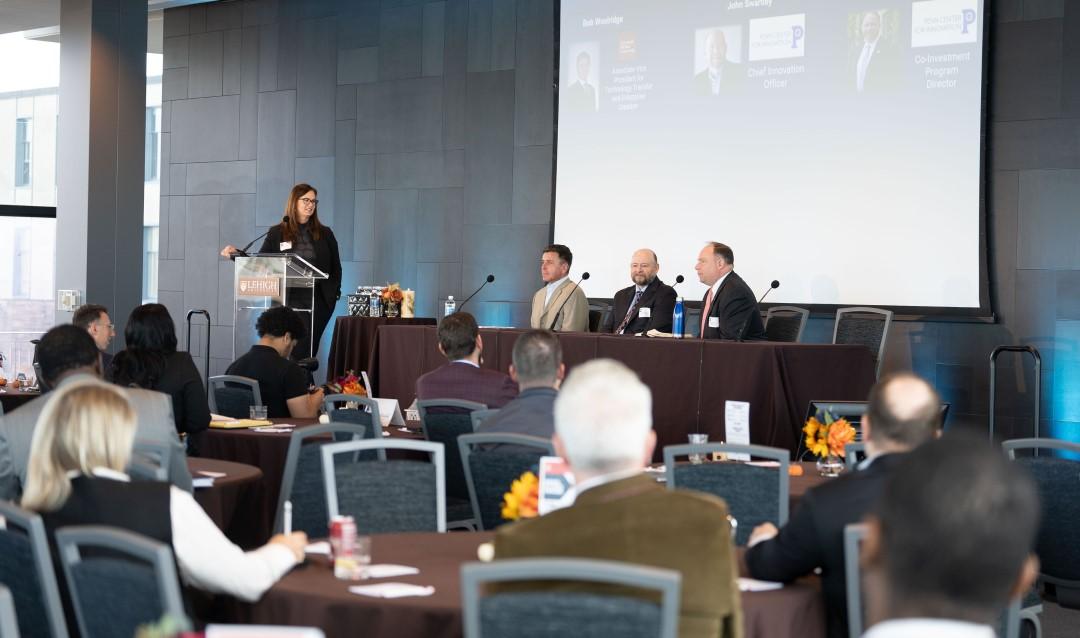The transformation of research into tangible products and programs that benefit society was the focus of the Powering PA’s Future Symposium held at Lehigh’s Mountaintop campus on Friday.
Entrepreneurs, venture capitalists, state officials and university leaders from across the commonwealth were among those who attended the event held in the Wood Dining Room at Iacocca Hall. The symposium aimed to bring these sectors together to help grow Pennsylvania’s innovation economy, where new ideas, products and technologies are created, applied and commercialized to drive economic growth.
Addressing the crowd, Provost Nathan Urban said it was fitting to hold the symposium at Iacocca, one of eight buildings that were part of Bethlehem Steel’s Homer Research Labs complex. Lehigh took over the complex in 1986.
“We have taken over this campus and see it as a place for the kind of innovation, the kind of partnerships with for-profit companies that are critical to the economic development that we see playing an important role here in the Lehigh Valley, and more broadly, across Pennsylvania,” Urban said.
Ben Kirshner, Gov. Josh Shapiro’s chief transformation and opportunity officer, spoke at the event, which in addition to Lehigh was hosted by Pennsylvania’s Office of Transformation and Opportunity and the Pennsylvania Department of Community and Economic Development (DCED).
Innovation is a key part of Shapiro’s economic development policy for Pennsylvania because it drives growth and high-paying jobs, Kirshner said. He highlighted a recent report from McKinsey Global Institute outlining more than a dozen research-driven industries that could reshape the global economy. They include artificial intelligence software and services, cybersecurity, air mobility, robotics, nonmedical biotechnology and drugs for obesity and related conditions.


